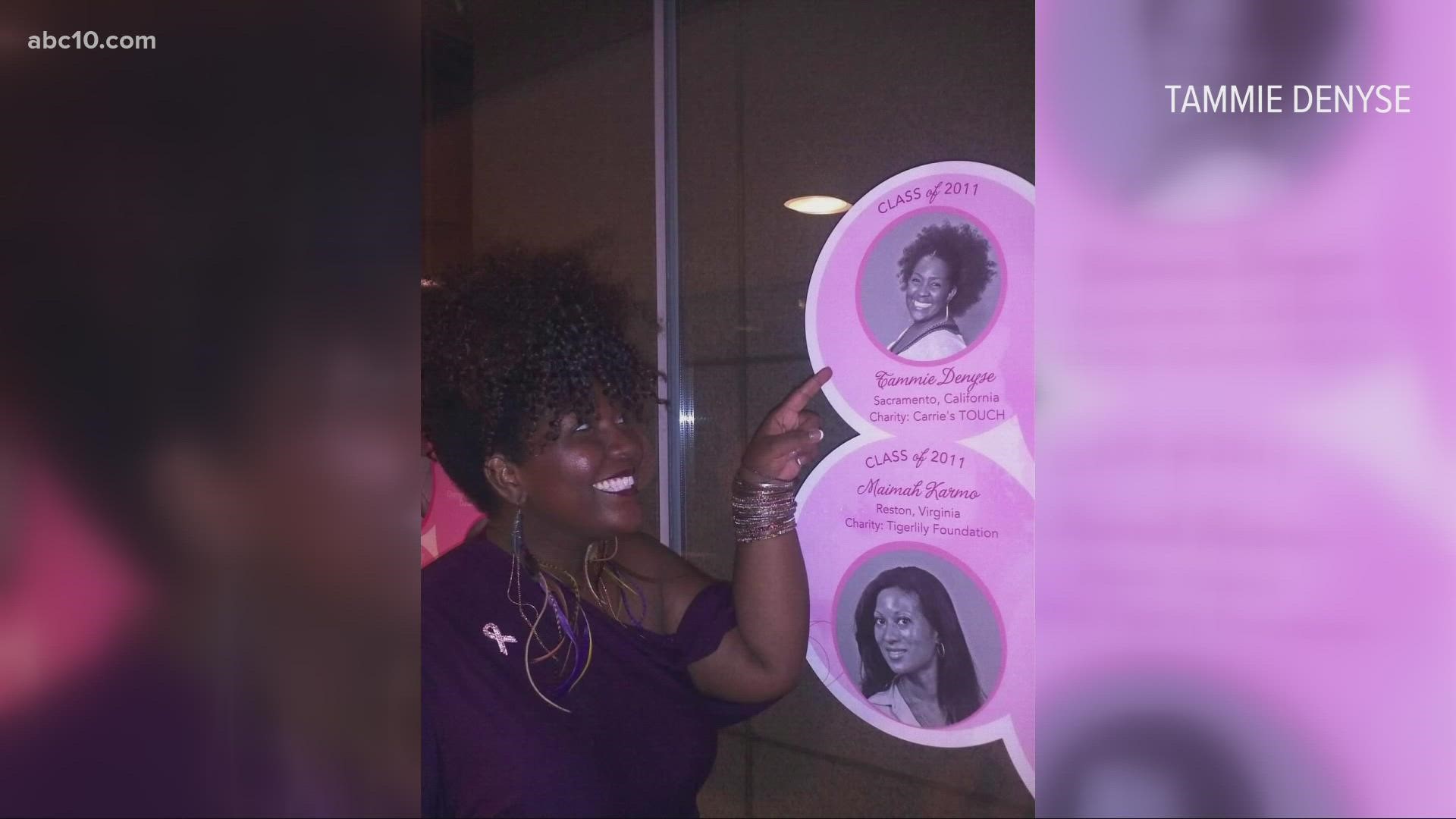SACRAMENTO, Calif. — Reverend Tammie Denyse found out she had cancer at 39 years old. She hadn't even reached the recommended age for breast cancer screenings when she was diagnosed with stage two breast cancer.
She said through prayer, she found her pain had purpose.
"I knew from the moment of diagnosis that my journey was not going to be for me," Denyse said.
Her oncologist would give her that first opportunity.
"He said that I qualified for a clinical trial and I asked him, 'well, how are Black women responding to this trial' and he said 'I don't know'," Denyse said, adding she signed up for the trial so her doctor would know of one Black woman involved.
The trial allowed patients to get chemotherapy treatments every 14 days instead of 21. Denyse went through a lumpectomy, chemotherapy, radiation, hormone therapy, a hysterectomy, and a bilateral mastectomy. She's now 17 years cancer free with a non-profit of her own named "Carrie's Touch", aimed at helping Black women through their cancer journeys. It's entering its 15th year and Denyse said the mission is simple: she wants to save more black women.
That trial she participated in years ago is now the standard of care, so she also encourages others to look into how they can help through trials and studies.
UC Davis Health is currently helping with the Wisdom Study, which looks into the safest and most effective way for doctors to detect breast cancer. The goal is to determine if mammograms should be an annual recommendation or individualized for each patient.
"There's really no question that mammographic screening is beneficial, but mammographic screening can also cause some harms and we want to be able to increase the benefit and decrease the harms," Dr. Sandy Borowsky, UC Davis Professor of Pathology and Laboratory Medicine, said. "The harms are more along the lines of finding something that look suspicious."
To participate in the study you must:
- Identify as female
- Live in the U.S.
- Between the ages of 40 - 64
- Have no prior diagnosis of breast cancer.
ABC10: Watch, Download, Read
Watch more from ABC10
Health Beat | Why young children are more likely to spread COVID



















